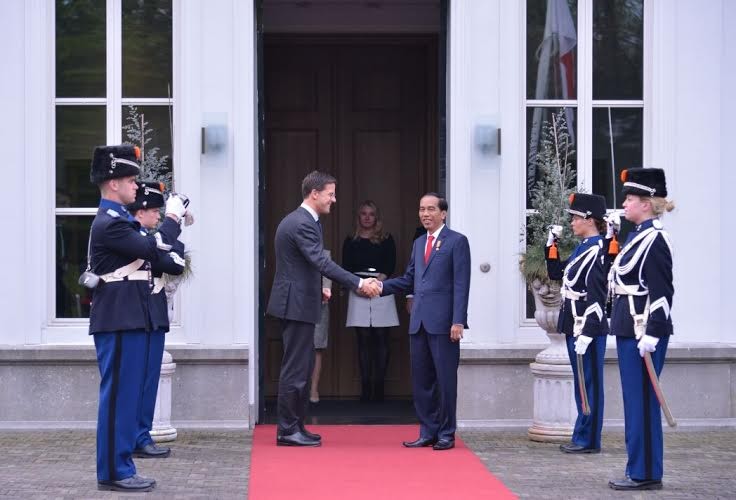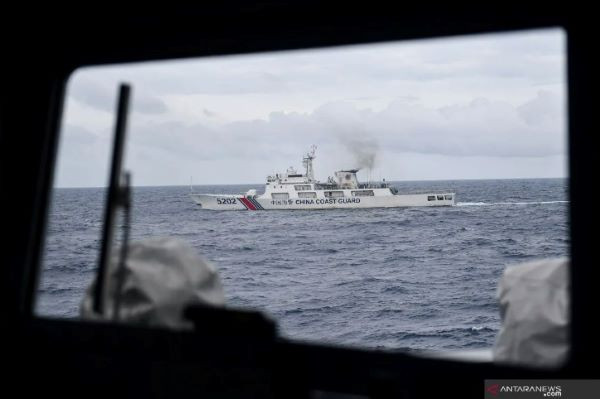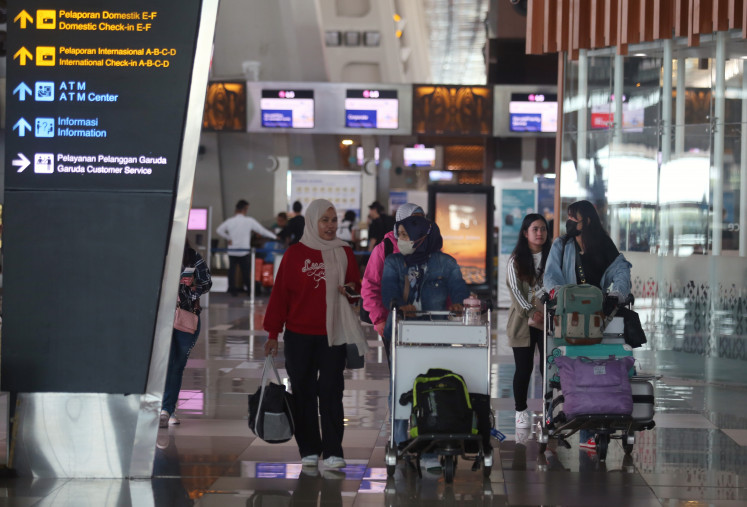The Dutch apology
The dispute over the historical facts speaks more about the internal struggle of the Dutch people in dealing with their past.
Change Size
 President Joko “Jokowi” Widodo (right) shakes hands with Netherland Prime Minister Mark Rutte after their meeting in The Hague, The Netherlands on March 22, 2016. (President’s press bureau/Laily)
President Joko “Jokowi” Widodo (right) shakes hands with Netherland Prime Minister Mark Rutte after their meeting in The Hague, The Netherlands on March 22, 2016. (President’s press bureau/Laily)
P
resident Joko “Jokowi” Widodo has rightly refrained from giving an immediate response to the statement of apology from Dutch Prime Minister Mark Rutte for the “extreme violence” committed by the Dutch colonial forces during the 1945-1949 revolution war that followed Indonesia’s proclamation of independence on Aug. 17, 1945.
Indonesia from the very beginning has decided to move forward, rather than becoming a prisoner of the bitter past. The issue has never been made a big fuss.
When visiting Indonesia in March 2020, Dutch King Willem-Alexander expressed his apology for “excessive violence” Indonesians endured during the four-year revolution. President Jokowi, who was standing next to the king, simply nodded and smiled. Jokowi’s reaction seemed to reflect the attitude of Indonesian people, many of whom are survivors of the Dutch colonialization.
The king also reiterated the royal kingdom’s recognition of the independence of Indonesia on Aug. 17, 1945. The date itself is still disputed by some Dutch people until now, especially war veterans, but that’s their own business. Those who question Indonesia’s independence day, or insist that Dutch colonialism contributed much to Indonesia’s existence today, will not change the history of the Indonesian nation.
The dispute over the historical facts speaks more about the internal struggle of the Dutch people in dealing with their past. Their ancestors colonized the archipelago now called Indonesia for 350 years. As a victim of colonialism, however, Indonesia has made peace with the past.
Indonesia has also shown the same maturity toward its other former colonial master Japan, which occupied Indonesia for three and a half years until 1945. Indonesia has decided to put the horrific acts of the Japanese imperial forces behind it. Like other former colonial powers, Japan looks reluctant to accept the truth and until now remain unable to come to terms with its former colonies, especially China and Korea.
Dutch Prime Minister Mark Rutte expressed the Dutch government’s apology last week after a study his government funded concluded that the Dutch army had committed systemic and extreme violence against Indonesians in the attempt to regain its control over Indonesia after World War II. His apology has sparked controversy in the Netherlands, while in Indonesia it has hardly won public attention.
The study, conducted by researchers from the Institute for War, Holocaust and Genocide Studies (NIOD), the Netherlands Institute of Military History (NIMH) and the Royal Netherlands Institute of Southeast Asian and Caribbean Studies (KITLV) disputed the official Dutch stance that, in general, their armed forces had behaved correctly in Indonesia between 1945 and 1949.
Rutte also said sorry for the "subsequent blind eye by various previous Dutch governments".
For Indonesia's younger generation, the Dutch did not leave a great legacy. Very few Indonesians speak Dutch in their daily lives, with the exception of the elderly people living in the provinces of North Sulawesi, Maluku and North Maluku. Law students still have to learn the language because the Indonesian legal system inherited Dutch colonial law.
Let the historians continue digging deeper into the past relations between the Dutch and Indonesia for academic purposes and discovery of the truth. As a big nation, Indonesia will not let itself be confined by the bitterness of past colonialization.









